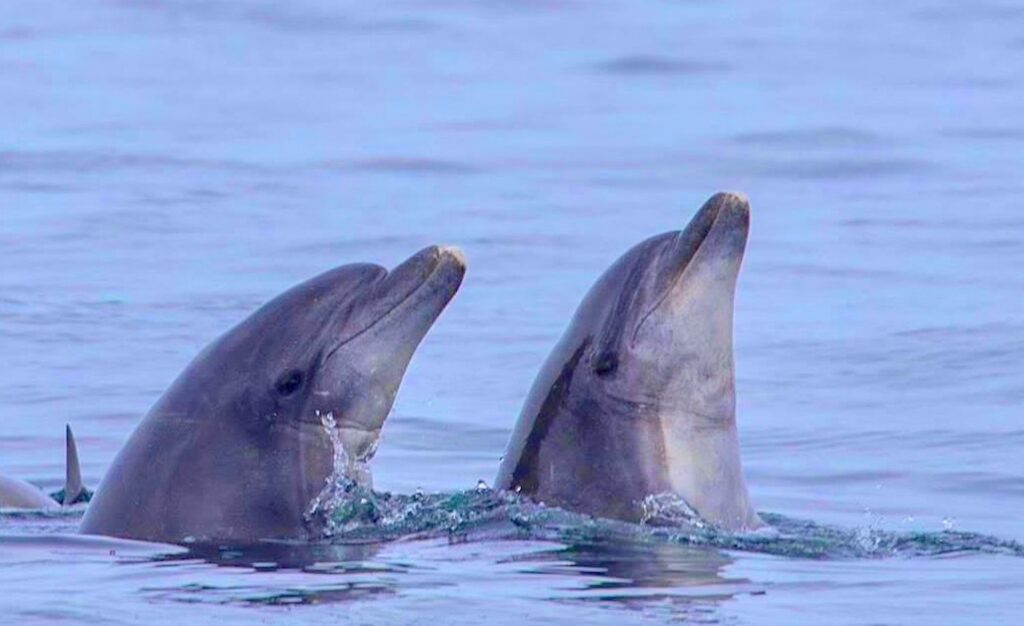Phil Coles is a multifaceted marine wildlife filmmaker and illustrator whose formal training in both biology and art shaped a unique and dynamic career. Specializing in the underwater world, Coles has directed, produced, and edited award-winning natural history documentaries that explore the lives of marine creatures—from the mysterious depths inhabited by giant squid and electric eels to vibrant coral reefs teeming with biodiversity.
Phil, a member of the Sea Save Foundation Board of Directors, is currently on location with the Sea Save delegation at the United Nations Ocean Conference. He brings a fresh perspective to the meeting coverage.

Hello, you may remember me blogging from the frontlines at CITES COP19 a few years ago. I’m thrilled to say I’m back with the Sea Save Foundation team for this week’s United Nations Oceans Conference 2025. Sea Save has attended all three ocean conferences to date, but this is a first for me, so again I’ll share with you a newcomer’s experience and try to explain how this works as I learn it for myself.
I think many of you feel the same way that I do; a bit powerless, frustrated that we all know the problems the world is facing, but we don’t really see what’s being done to address them, and feeling that any progress being made is painfully slow.
One reason for that is that most of that ‘progress’, and the process behind it, happens behind closed doors, so we, the public, don’t see what our governments are doing. But this week I’m going through those doors and will see the process and want to share the experience. It’s important, because it truly gives reasons for hope.
It’s incredibly exciting. Arriving in the stunning town of Nice on the southeast coast of France, and being reunited with my lifetime friends, the endlessly inspiring masterminds behind the Sea Save Foundation, Georgienne Bradley and Jay Ireland. But what’s also mind-blowing is that representatives from almost every government in the world have descended on this little town amid a halo of sirens from police escorts. Super security for the world’s leaders. They are here because this is one of the most important opportunities for decision making for a better, brighter future, for the oceans and all of humanity.
In 2016 the United Nation’s created 17 focus areas for a more sustainable future on Planet Earth. They are the ‘United Nations Sustainable Development Goals’. They include things like reducing poverty, better equality, improving education and taking climate action. But Sustainable Development goal 14 is for ‘Life Below Water’, to ‘Conserve and Sustainably use the oceans, seas and marine resources for sustainable development’, and this COP, or conference of the parties, focuses on this Sustainable Development Goal.
There are many ground-breaking international treaties that have been proposed to realise the ambition of goal 14, and this week, hopefully, they will be ratified, which means written into international law.

The big-ticket item is BBNJ, often called ‘the high sea treaty’. BBNJ stands for Biodiversity Beyond National Jurisdiction (or officially ‘Marine Biological Diversity of Areas Beyond Jurisdiction’), because it’s acknowledging that while Nations can make change to protect or sustainably use their own territorial waters, no such protocol is in place for international waters, which belong to no-one – or everyone, depending on your point of view. When you consider that’s 43% of the planet’s surface, more than half of the ocean, the incredible system that regulates our weather, provides our oxygen, gives us food and other resources and helps stabilise the climate, that contains very poorly known, fragile, slow to recover, deep-sea habitat – it’s really vital! Especially in the face of growing enthusiasm for opening the deep-sea to mining and other forms of currently unregulated exploitation. The treaty was ‘adopted’, which means there was a consensus that it was a good idea, in 2023, but this week is when decision makers have the opportunity to turn it into law. But only if enough nations vote in support. We need at least 60 member states (of 170) to vote in favour – so tensions run high.

The UN’s website says the theme of this conference is “accelerating action and mobilising all actors to conserve and sustainably use the ocean”, which sounds very dynamic, but in truth, all changes at this level take years of discussion and research, years of litigation and years of funding, planning and implementation before any affective change happens. To bystanders like me, it seems painfully slow, too slow when there are so many issues that need immediate action. And that’s one of the things I hope to explore and share with you this week, understanding the process from concept to effective change.
It’s also really exciting for me because right now I’m looking out to sea, a stretch of the Mediterranean known as the Pelagos Sanctuary, a spectacular nature reserve for whales. It’s a hotspot for fin, sperm, pilot and Cuvier’s beaked whales and four species of dolphin. Also, the critically endangered Mediterranean monk seal.
But what makes this relevant is that to create the sanctuary required three different countries to work together, France, Italy and Monaco. To me it’s a powerful reminder of what can be achieved when nations work together. Hope for a better future, and that’s what this week is all about.
The sun’s setting over the sea. It’s time to get some rest – tomorrow is going to be a big day, I hope you’ll come along for the ride
Sincerely,
Phil Coles
Director of Education
Sea Save Foundation




